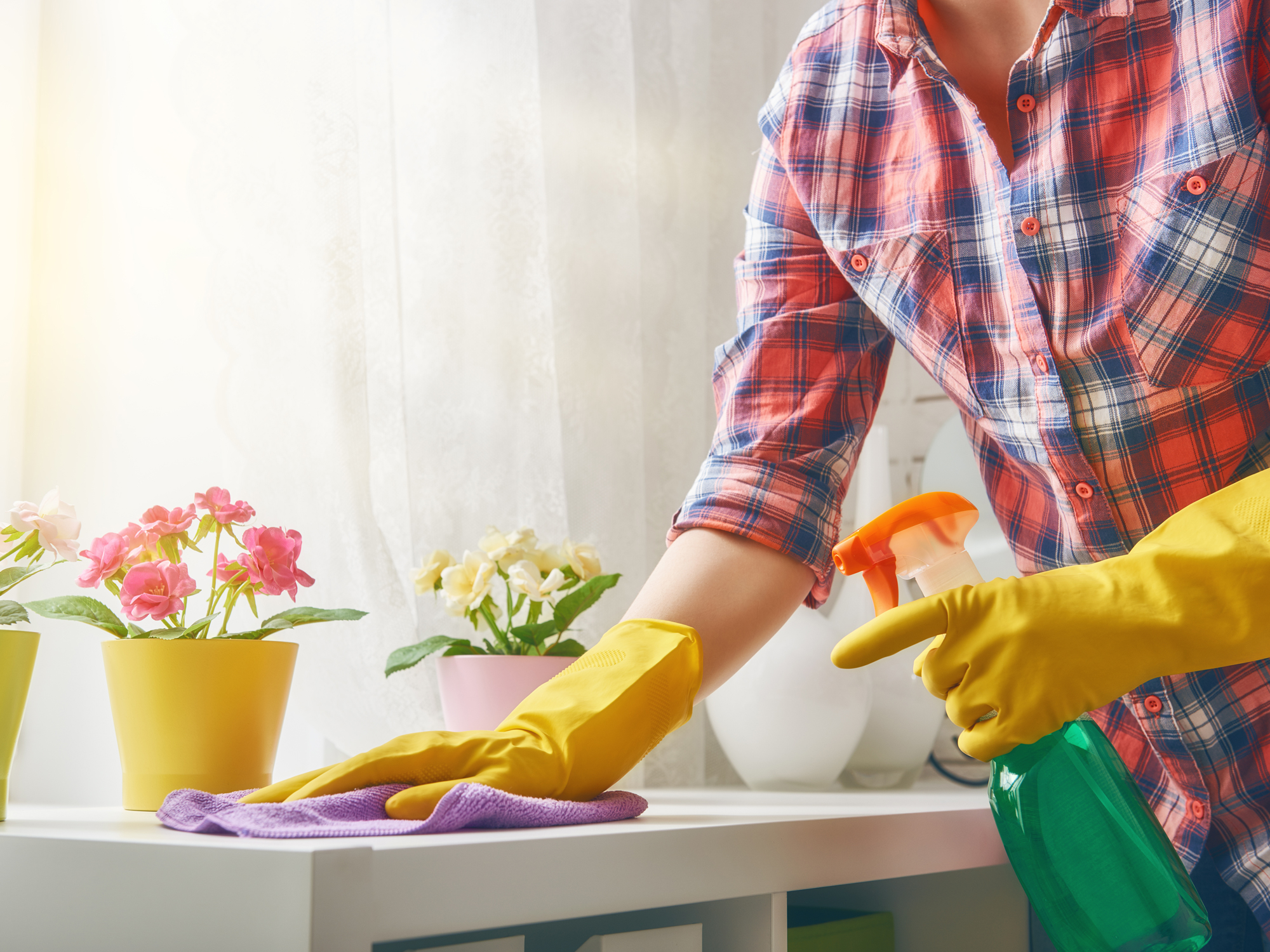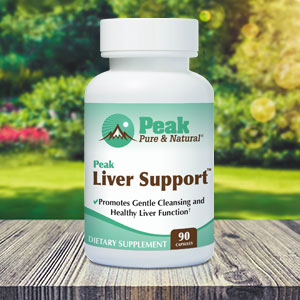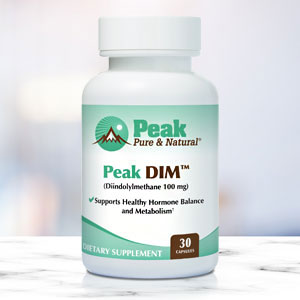Get Easy Health Digest™ in your inbox and don’t miss a thing when you subscribe today. Plus, get the free bonus report, Mother Nature’s Tips, Tricks and Remedies for Cholesterol, Blood Pressure & Blood Sugar as my way of saying welcome to the community!
How housework harms like a 20-year smoking habit

With warmer weather just around the corner, you’re probably gearing up for some spring cleaning.
But be careful…
Environmental experts tell us that the average household contains about 62 toxic chemicals, many of which are hiding in your carpet cleaner, window sprays, scouring powders and other cleansers.
And, believe me, those chemicals are far more harmful than the cobwebs, dust and musty smells you’re trying to eliminate…
Previous research has shown that a wide variety of household cleaners containing fragrances release airborne carcinogens into your home — and that’s not your only concern…
Research that followed 6,000 people over 20 years found that regular use of cleaning sprays has an impact on your lungs comparable to smoking a pack of cigarettes every day!
In fact, the research, recently published in the American Thoracic Society’s American Journal of Respiratory and Critical Care Medicine, discovered that women who worked as cleaners or regularly used cleaning products at home experienced a decline in lung function comparable to smoking 20 cigarettes a day over 10 to 20 years!
For health’s sake, toss those killer chemicals… but don’t fret: with just a little ingenuity and elbow grease, you can have the clean, sweet-smelling home you desire without harm…
Toxic cleansers and their safer alternatives
When you know which cleaning products to avoid, and what the alternatives are, you’ll be prepared to have a truly clean home this spring, not a house full of poison.
To that end, here are 8 toxins to look out for.
- Phthalates – They’re in any products that make your home smell good, from air fresheners to dish soap to laundry detergent. Phthalates are endocrine disruptors. They interrupt the function of your body’s many hormones, which regulate your heart rate, blood sugar, stress levels and more.
To avoid phthalates, choose fragrance-free or all-natural organic products. To freshen the air, use essential oils or throw the windows open when the weather permits. Avoid aerosols and plug-in air fresheners.
- Perchloroethylene (PERC) – PERC is a neurotoxin. People who live in buildings above dry cleaners have reported dizziness, loss of coordination, and other symptoms. PERC is also classified as a “possible carcinogen” by the Environmental Protection Agency.
Many dry cleaning businesses are becoming certified in “wet cleaning,” which uses computer-controlled washing machines, biodegradable soaps and conditioners, and is a safer alternative to dry cleaning using chemical solvents.
At home, pre-treat stains by rubbing undiluted castile soap into clothing before washing.
- Triclosan – Found in most antibacterial hand and dish soaps, triclosan is being investigated as another possible endocrine disruptor and carcinogen. In addition, it is an aggressive antibacterial agent that can cause your body to develop a resistance to infectious bacteria.
Antibacterial products with triclosan have not been proven any more effective than ordinary soaps. Look for basic soaps with short ingredient lists. If you use hand sanitizers, make sure they are alcohol-based and do not contain triclosan.
- Quarternary Ammonium Compounds, or “QUATS”- Fabric softeners are the biggest culprits here. QUATS are antibacterial and, like triclosan, help breed antibiotic-resistant bacteria. There is also evidence that links them to asthma, and one study showed that QUATS were the leading cause of contact dermatitis in subjects.
The alternative? Vinegar is a natural fabric softener, and removes soap residue. You may need to run your clothes through an extra rinse cycle, but isn’t it worth it?
- 2-Butoxyethanol – The main ingredient in many window and kitchen cleaners, this powerful solvent causes sore throat when inhaled, and with continual exposure can contribute to pulmonary edema, as well as severe liver and kidney damage.
The alternative is simple, and something your grandmother probably used. Clean your windows and mirrors with newspaper and vinegar. For other surfaces, sprinkle a combination of baking soda and essential oil, and pour vinegar on top. Once fizzing has stopped, scrub with a damp sponge and rinse with hot water.
- Ammonia – Those sparkling windows come at a price: people with asthma or other lung issues will be especially affected by inhaling ammonia fumes. In fact, chronic bronchitis and asthma are the results of continued exposure to ammonia.
Instead, use vodka. That’s right! It produces a great shine on any metal or mirrored surface.
- Chlorine – The health risks here can be both chronic and acute. Exposure to chlorine in scouring powders and bowl cleaners happens through the lungs and the skin. It’s a respiratory irritant, but most people don’t know that over time it also disrupts thyroid function.Vinegar, borax (did you know you can supplement with borax? Find out how and why here) or baking soda work just as well as chlorine, and are safe to breathe and touch.
- Sodium Hydroxide is found in oven cleaners and drain openers, so naturally it is extremely corrosive. It can cause severe skin and eye burns, and breathing it can cause a sore throat that lasts for days.
With a little more muscle, even the dirtiest oven can be cleaned with baking soda paste. After putting a dish of hot water in the oven to soften any baked-on grease, scrub with a paste made of equal parts baking soda, salt and vinegar.
Editor’s note: Have you heard of EDTA chelation therapy? It was developed originally to remove lead and other contaminants, including heavy metals, from the body. Its uses now run the gamut from varicose veins to circulation. Click here to discover Chelation: Natural Miracle for Protecting Your Heart and Enhancing Your Health!
Sources:
- Household cleaning can be as bad as smoking for lung function — University of Bergen
- Disinfectant use linked to lung disease — NaturalHealth365.com
- 8 Hidden Toxins: What’s Lurking in Your Cleaning Products? — ExperienceLife.com
- Professional Wet Cleaning — Greener Cleaner














